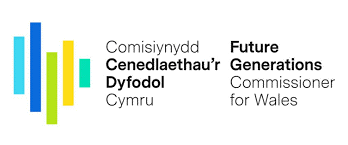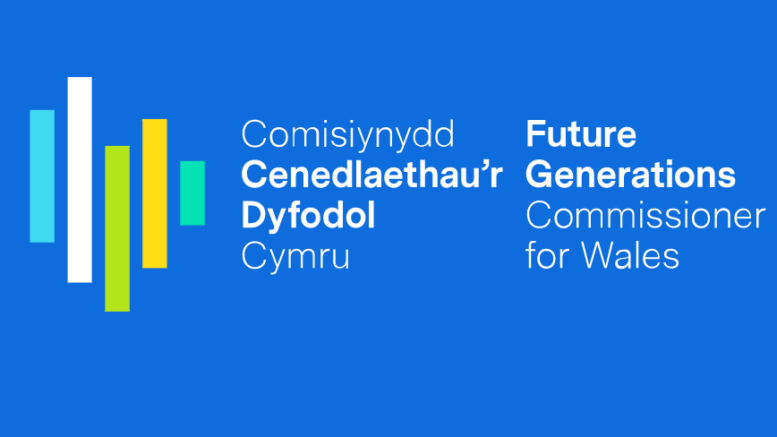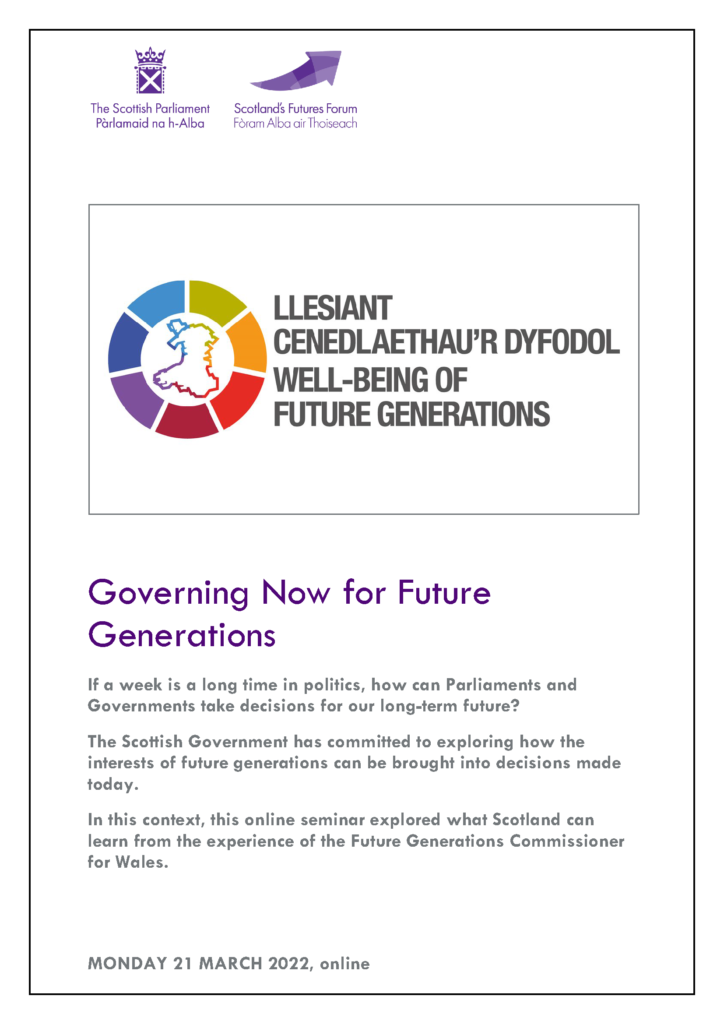Monday 21 March 2022, online
Introduction
As part of the Futures Forum’s consideration of the future of democracy in Scotland, Brian Whittle MSP chaired a seminar on governing for future generations. This featured a presentation by Sophie Howe, the Future Generations Commissioner for Wales, followed by a Q&A session.
It offered participants an informal opportunity to explore how our decision-making now can take account of the interests of people in the future and what Scotland can learn from what is happening elsewhere in the United Kingdom.
Speaker
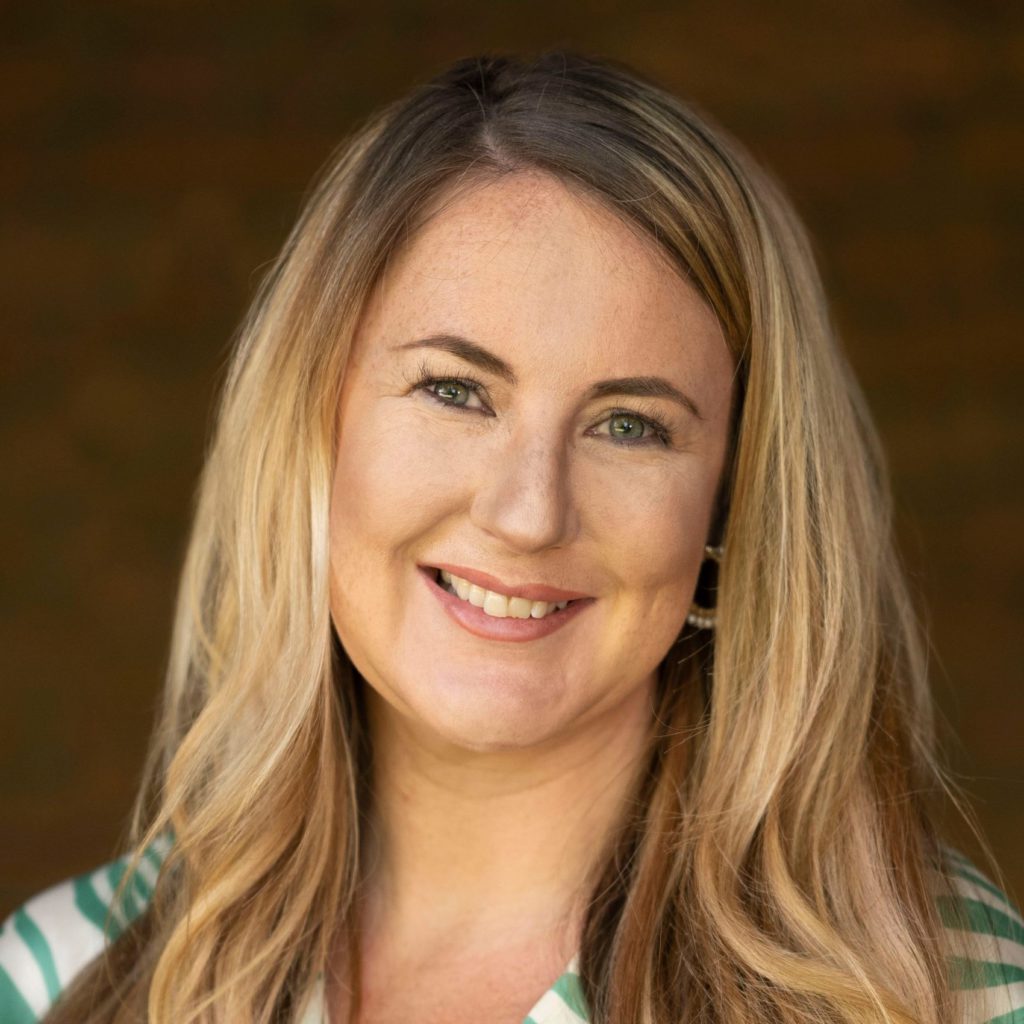
With a remit set out in law to be “the guardian of the interests of future generations in Wales”, Sophie Howe is the world’s only Future Generations Commissioner.
Her role is to provide advice to the Government and other public bodies in Wales on delivering social, economic, environmental and cultural wellbeing for current and future generations and assessing and reporting on how they are delivering.
Sophie took up post in 2016 and has led high-profile interventions in transport planning, education reform and climate change, challenging the Government and others to demonstrate how they are taking account of future generations.
Prior to this role, Sophie was the first Deputy Police and Crime Commissioner for South Wales where she led programmes to tackle violent crime and violence against women and girls, focusing on early intervention and partnership working.
Read more about the Future Generations Commissioner of Wales
Chair
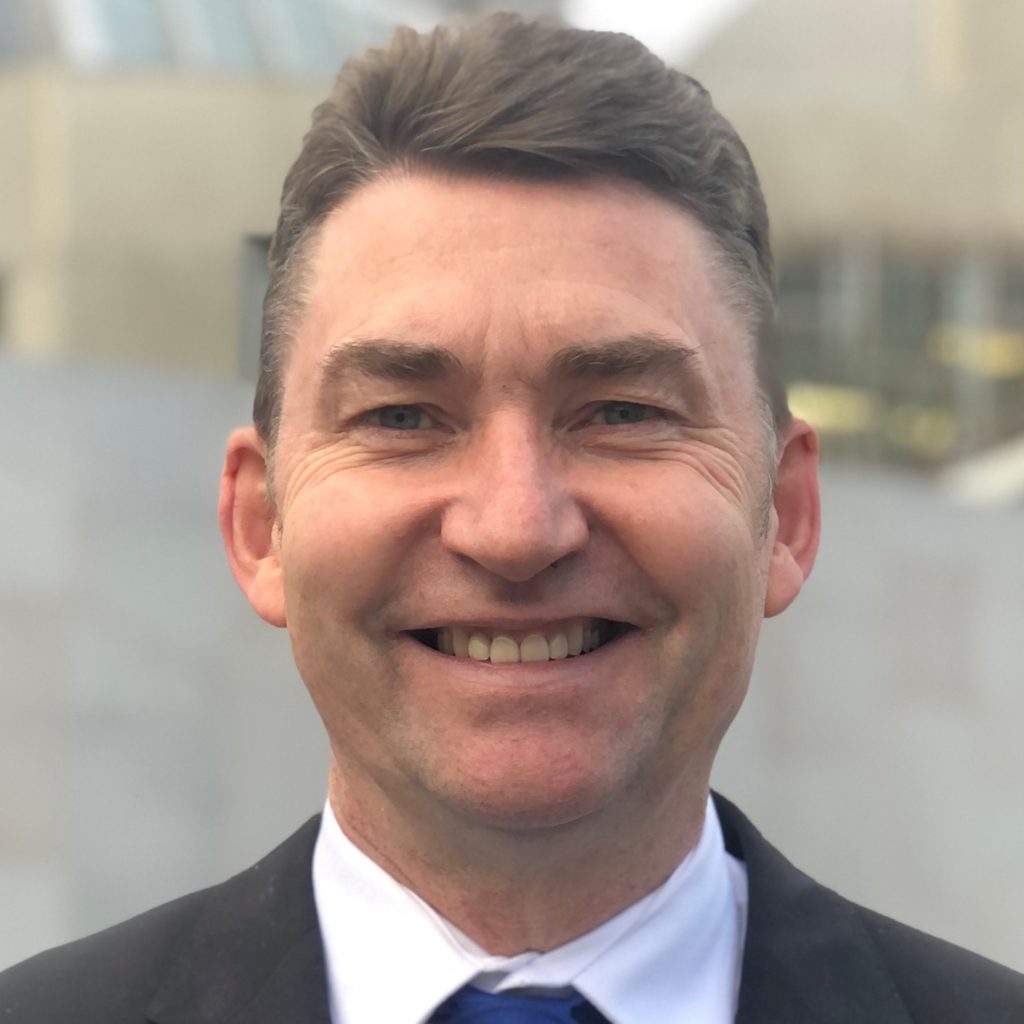
Brian Whittle MSP grew up in Ayrshire, and qualified as an industrial chemist before becoming a professional athlete.
A South Scotland MSP, he has championed the role of community organisations and local sports clubs in promoting good physical and mental health.
He is also an advocate for the use of technology and innovation to address many of the long-term challenges facing Scotland. Brian is one of the MSP directors of Scotland’s Futures Forum.
Attendees
The seminar was open to Members of the Scottish Parliament, Members of the UK Parliament, their staff and Parliamentary officials, as well as others in the Futures Forum network. The following elected Members attended:
- Kirsty Blackman MP
- Sarah Boyack MSP
- Maggie Chapman MSP
- Philippa Whitford MP
- Brian Whittle MSP
The event was supported by officials from Scotland’s Futures Forum and the Westminster All-Party Parliamentary Group on Future Generations.
Presentation by Sophie Howe, Future Generations Commissioner for Wales
What do we want to leave behind?
Sophie began by highlighting a challenge facing countries around the world: systems of government and politics are intrinsically short term. Looking 50,000 years into the future, she noted that generations as yet unborn could, by then, amount to some 6.75 trillion people, and the positions that we take now will have a critical impact on them all. It is therefore crucial that we have some sort of duty to take account of the interests of future generations. So how do we change our approach?
In Wales, as Sophie outlined, politicians responded to that challenge by passing legislation: the Wellbeing of Future Generations (Wales) Act 2015, which established the role of Future Generations Commissioner.
Sophie gave a rundown of the Act’s infrastructure. As an overarching principle, it requires that the 44 public bodies it covers demonstrate how they take decisions in a way that meets today’s needs without compromising the ability of future generations to meet their own needs. The Act sets out seven long-term wellbeing goals; Sophie noted that they are not dissimilar to Scotland’s national performance framework, and she described Scotland as being ahead of the game in that regard, albeit that its framework is not set out in law.
Seven wellbeing goals
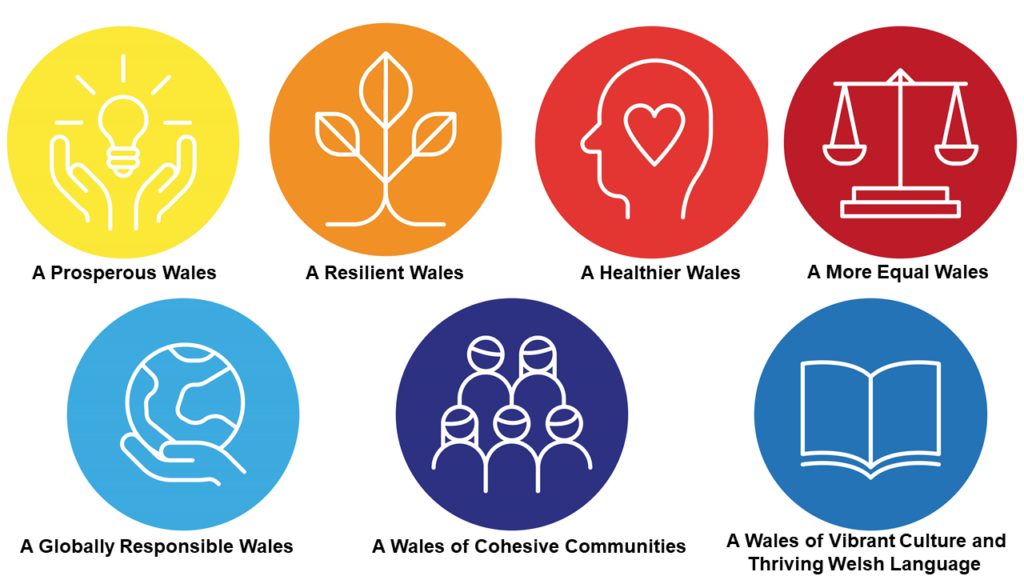
Sophie explained that the seven long-term goals, which include making Wales more prosperous, more resilient and healthier, were devised in conversation with the citizens of Wales. A question was posed: what kind of Wales do you want to leave behind to your children and grandchildren, and to subsequent generations?
As Sophie described, there had been online discussions and town hall meetings across the country, and discussions with various organisations such as the Women’s Institute and the Welsh youth movement, Urdd. The Welsh Government also drew on the United Nations sustainable development goals.
A more holistic view
Is it revolutionary for a country to have a set of long-term goals? Sophie argued that it is, given that our current political system tends to operate on a five-year cycle. In contrast, the seven goals are set in law and do not change.
There are duties on the Welsh Government, whichever party is in power, and on the 43 other institutions to set objectives that maximise their contribution to those goals. How they go about achieving those objectives may change, but the statutory duties remain.
As Sophie emphasised, that means, crucially, that the institutions all have to work beyond their traditional boundaries and take a more holistic view. This change is already starting to happen.
Sophie noted that each goal has a statutory definition that aims to drive policy in a progressive direction. For example, the goal of a prosperous Wales refers to an innovative, productive and low-carbon society which recognises the limits of the global environment and uses resources efficiently and proportionately.
In addition, as Sophie outlined, the Future Generations Act sets out five approaches that public bodies must take into account in their work. This includes considering the long-term impact in their decision making; taking an integrated approach that recognises connections between the goals; and working in a collaborative way across the public, private and third sectors and involving citizens too.
Sophie noted that the Act uses the word “involving” rather than consulting or engaging, which suggests a more in-depth co-production approach. She emphasised that it places not only individual duties on public bodies such as local authorities and health boards, and the Welsh Government, but collective duties too.
The Act provides for the establishment of public services boards that comprise all the key public services and others in each local authority area. Those boards have a duty to set a collective wellbeing plan that outlines their priorities for working together.
Enabling the change
Sophie described her role as Commissioner as enabling the change, and being both coach and referee. She has powers to provide advice and support to public bodies on how they go about implementing the Act and meeting the seven wellbeing goals, and she has duties to monitor and assess their progress.
As Sophie set out, there are specific duties on the Welsh Government to set national indicators, with 46 indicators that track progress on meeting the seven long-term wellbeing goals. She highlighted a familiar problem: the indicators are not perfect, because they tend to focus more on what can be measured rather than on areas where more detail is needed.
In addition, the Government has a duty to set milestones—targets that it wants to achieve within specified amounts of time—which link back to the goals, and to publish a future trends report that public bodies and the public services boards can use in setting their own wellbeing plans.
How does the Commissioner go about providing advice and support? Sophie highlighted the range of tools at her disposal, such as the Welsh future generations framework. This contains prompt questions for delivering new infrastructure, service redesign or policy reform in the context of the Act.
Importantly, as Sophie noted, her approach is not prescriptive; it is more about providing a menu of potential options and practical ideas. As she described, the Commissioner’s team provides detailed policy advice—for example, on funding housing retrofit in a long-term, sustainable way—and works directly with public bodies as a sounding board.
As Commissioner, she has a helicopter view across policy areas and public bodies, and a lot of her work is about bringing people together: convening, connecting, sharing best practice and offering challenge where necessary.
Unpicking the culture of a lifetime
Focusing on the area of transport, Sophie highlighted several examples of how the Act, and her powers and duties as Commissioner, have made a real difference in Wales.
As Commissioner, she intervened in the Welsh Government’s plan to build a 13-mile stretch of motorway to deal with congestion on the M4. She asked the Government to explain how it had applied the Future Generations Act in making its decision, and she challenged the Government on whether its policy was in line with the goals of a resilient, healthier and more equal Wales.
Although a public inquiry recommended that the scheme should go ahead, the First Minister changed his mind, giving more weight to environmental rather than economic arguments. Sophie highlighted that as the first major win for the Future Generations Act.
Sophie also described how the Act had impacted on transport strategy more broadly. As she put it, the Commissioner’s work involves attempting to unpick the culture of a lifetime in public sector decision-making. She also has to unpick specific policies and legislation that conflict with what the Act is trying to achieve. She emphasised that while the Act is a brilliant starting point, intervention is needed at various points afterwards—for example, through her work on ensuring that the Welsh transport guidance conforms to the Act’s requirements.
Sophie stressed that scrutinising the Welsh Government’s budget each year to see how it has applied the Act to its spending decisions has been quite a slow and arduous process. For the first few years, there was no shift, but she noted that this year has seen some significant changes in the budget. She pointed out that there was a new infrastructure investment strategy in Wales based on wellbeing objectives and goals set by the Welsh Government in the context of the Act, along with a moratorium on all future road building.
As Sophie noted, approaches such as applying a public health lens to a transport problem have led to a completely different set of solutions, with communities transformed by investment in active travel.
Building a movement
Sophie highlighted other examples of how the Act requires bodies to think about not only what to spend money on, but how that should be done, which is just as important. It asks organisations: how can you do things in a way that maximises your contribution to each of the seven wellbeing goals? She noted that there were loads of brilliant examples in schools and in the planning system, and that some significant changes in health prevention and in shifting spend had started to take place.
Nonetheless, Sophie argued that there is still a long way to go. As she said, it is definitely not a sprint, but a marathon—in fact, it is more of an expedition to the North Pole. However, she highlighted that the legislation is starting to change the culture.
Sophie noted that it is helpful to have an independent institution: a commissioner who is calling out on behalf of future generations and challenging the Government where the Act may not have been applied. Critically, although the Act applies only to the public sector, the third sector is also using it to frame its approaches and strategies. The private sector is increasingly doing the same, in some cases driven by procurement requirements.
As Sophie argued, having a national mission for Wales, which Team Wales can get behind, is incredibly powerful. She argued that the Future Generations Act, and her role as Commissioner, is not so much about having a stick to beat people with as it is about building a movement, inspiring people and sharing good practice.
Q&A session
The power of creativity
It was stated that changing the direction of travel in Scotland in areas such as health would take 20, 30 or possibly 40 years. Participants asked how, if we are going to lay the foundations for a long-term strategy, we can maintain continuity despite political change.
Sophie emphasised that the most important thing is to set long-term aspirations and ensure that the infrastructure in the NHS and in the rest of our public bodies aligns with them. She highlighted a challenge that had arisen in Wales: the Future Generations Act is about long-term strategies, but the day-to-day performance measures for the NHS, such as waiting times, are completely at odds with that.
Sophie indicated that preventative approaches are often not popular or easy, and agreed that it would probably take 20 or 30 years to shift the culture. Nevertheless, she suggested that the framework of the Act gives permission for local innovation, which is already leading to change.
One example is Swansea Bay University Health Board, which now has “creatives in residence”, who work in primary care and mental health to consider how the power of culture and creativity can be harnessed to deliver services differently.
Sophie stressed that, while the Act does not completely guard against the escalation or de-escalation of ministerial priorities, it nonetheless provides a strong context for people to take local action on the ground.
An incredible moment in time
It was noted that, while Scotland developed its outcomes framework without legislation, Wales began by passing the Act, which has influenced the third sector and private businesses to start taking the same approach.
It was argued that, since the pandemic, the public have changed their views on what is important, and they want a wellbeing recovery. How, therefore, do we seize the opportunity of this incredible moment in time and choose how we rebuild, rather than defaulting to what we had? What key actions should we be taking?
Sophie agreed that people were re-evaluating their lives and that there were several areas where change could be driven across the seven wellbeing goals. She stressed that where money is invested is crucial.
Noting that the Covid recovery strategy in Wales has been built around the Future Generations Act, she highlighted the massive increase in investment in housing retrofit and in decarbonising homes, which links in with addressing fuel poverty and strengthening communities.
Sophie revealed that, prior to the pandemic, she had had some tough conversations with the health sector. She argued that Covid has been a massive wake-up call regarding the impact of socio-economic disadvantage, and that there are now some interesting conversations happening in health.
The conscience of Government
Participants agreed with Sophie that using the word “involvement” rather than participation was important. The question of how much power the Commissioner actually has, and how far she can go, was raised. More broadly, participants asked whether the approach to big issues in Wales was more consensual than it currently appears to be in Scotland.
Sophie noted that the first question got to the nub of some of the challenges with the Act. She admitted that there were some unknowns around the Commissioner’s powers in practice, and she said that the only real route for enforcement was through judicial review. However, Sophie stressed that the most useful and powerful element of the Act was its potential role as the conscience of Government.
On the question of consensus, Sophie noted the duty on the Commissioner to publish recommendations every five years to influence party manifestos. She commented that 54 per cent of her recommendations had ended up in the programme for government, so, although some politicians were still a bit sceptical, there was a fair bit of consensus around them.
The risk of inaction
Participants raised the question of how much agreement there currently is on what needs to be done. Is there enough research to enable us to know what is good for wellbeing, or is it about running pilots to see if something works? Where is the balance just now?
Sophie emphasised that the Commissioner’s work is not so much about cutting-edge research. She pointed out that we already know a lot of things—for example, that climate change is coming. The challenge is that, even though all that evidence is out there, we are still not acting on it.
In that context, Sophie argued that she had to focus more on what needs to happen for us to change the way we do things, rather than simply layering more noise on top. She stressed that the process was a journey, and that once the cultural change starts coming, more progressive approaches can be introduced. In the light of talk about getting a return on investment, Sophie stated that she preferred to focus on the risk of inaction, arguing that there is a greater risk to wellbeing from inaction than from trying new things that may fail.
Systemic change
It was highlighted that, while pilot projects are interesting, they do not represent systemic change, which is a challenge in Scotland. Participants asked for information on the changes that have been brought about in Wales and the innovative work that is happening now that people are having to rethink their approach.
Sophie noted that case studies and examples were available on the Future Generations Commissioner for Wales’ website. She highlighted that she is working with the Government on five or six big policy areas, including the new zero waste strategy, to make connections between aims and benefits and describe the impact of changes.
How can we make this work?
A question was raised around whether a collective approach had been taken to engaging with the business community in particular. Noting that Sophie had talked about businesses being part of Team Wales and procurement as a potential route for change, participants asked what the most fruitful approach has been, and what the challenges are, in engaging with business.
Sophie noted that there was a massive opportunity with businesses, not least because they want to get involved. However, she said that the Commissioner’s team did not currently have the capacity to support business in addition to the 44 public bodies listed in the Act. It was also noted that supporting small and medium-sized enterprises is a different ball game, as more hands-on tools are needed.
Nevertheless, Sophie highlighted partnership work with the construction industry to develop frameworks for procurement in relation to the Well-being of Future Generations Act (2015), and she emphasised that senior leaders in the private sector are inspired by the Commissioner’s actions and are thinking about how they can make that approach work.
Partners

